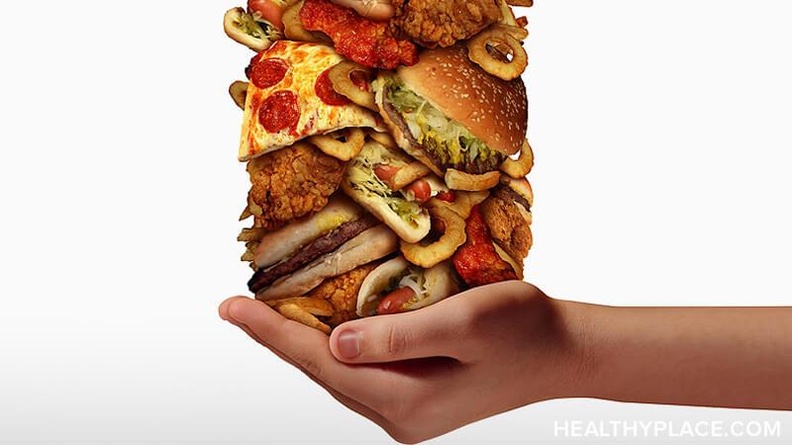Does Binge Eating at Night Mean You've Relapsed?

Binge eating at night is a problem for just about everyone who has the luxury of steady access to food, whether they are in eating disorder recovery or not. However, for those of us in recovery, these nighttime binges can be detrimental to our progress.
Understand, however, the problem lies not with the food so much as how with how someone in recovery views that food. Of course, regularly binge eating at night can, over time, result in unhealthy weight gain, which can result in the chronic diseases that accompany a high body mass index, but for people in recovery, that is not of the most immediate or important concern. The most important concern to my mind and in my experience with my own eating disorder recovery is that binge eating can result in a relapse.
Binge Eating at Night Can Cause Relapse
Relapses happen. They are part of recovery. This said, you'd be hard-pressed to find someone who wants to relapse more than necessary.
When I was in my early eating disorder recovery from bulimia, binge eating at night would make me feel like I was out of control -- and eating disorders and eating disorder recovery are both about control. When I was suffering from my eating disorder, it was about giving control over to the disease, although at the time I thought I was trying to take it back. I never really took it back until I was in recovery, though.
It took me years to realize that binge eating at night doesn't mean you've relapsed: it just means you're human. As I said earlier, everyone binge eats sometimes.
Why Does Binge Eating Happen at Night?
I was a personal trainer and nutrition specialist for a decade. During that time, I had hundreds of clients who came to me concerned about their nighttime calorie consumption.
For most individuals, binge eating at night usually happens because they are tired, emotional and seeking comfort from food. Breaking free of this cycle can take time, and in my next blog, I will be talking about tips to stop binge eating at night.
For now, I want to stick to the why binges happen.
The second most common reason people binge eat at night -- and this is especially true for myself and I suspect others suffering and even recovering from eating disorders -- is because they have not eaten enough during the day. I can remember many nights in my early recovery when I'd restrict my eating too much during the day and then by the evening, I I was not only tired, but tired and incredibly hungry. As a result, I not only ate, which is fine, but overate, which for me, was dangerous.
I'd feel like I'd failed.
It took me years to outgrow this mindset -- but I did eventually, and am stronger and more self-aware for it. Stay tuned for my next blog, wherein I'll talk about how I learned to control and reduce binge eating at night. Spoiler: it still happens sometimes. Remember, we're all human.
APA Reference
Ghadery, H.
(2020, July 28). Does Binge Eating at Night Mean You've Relapsed?, HealthyPlace. Retrieved
on 2026, March 4 from https://www.healthyplace.com/blogs/survivinged/2020/7/does-binge-eating-at-night-mean-youve-relapsed